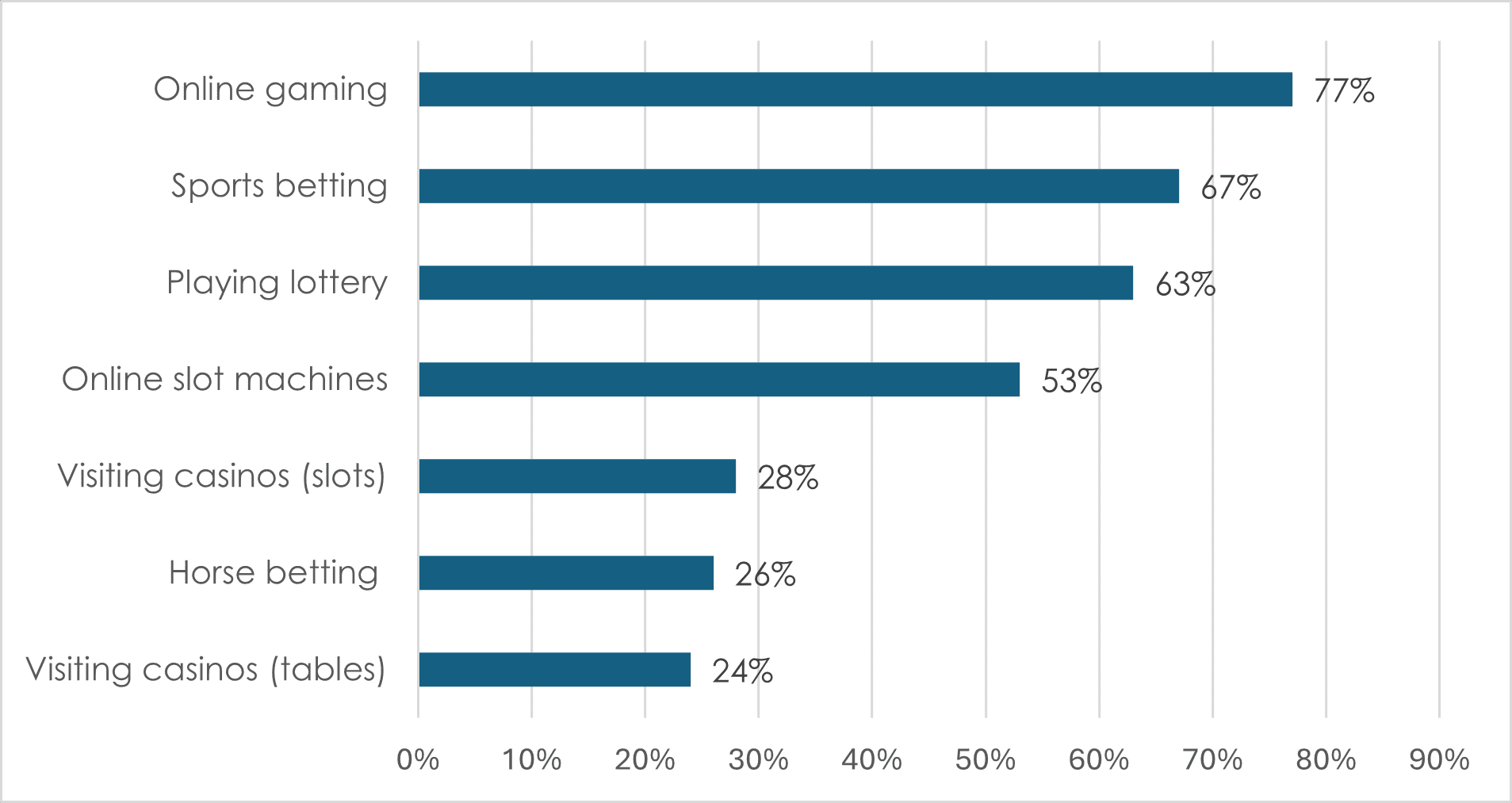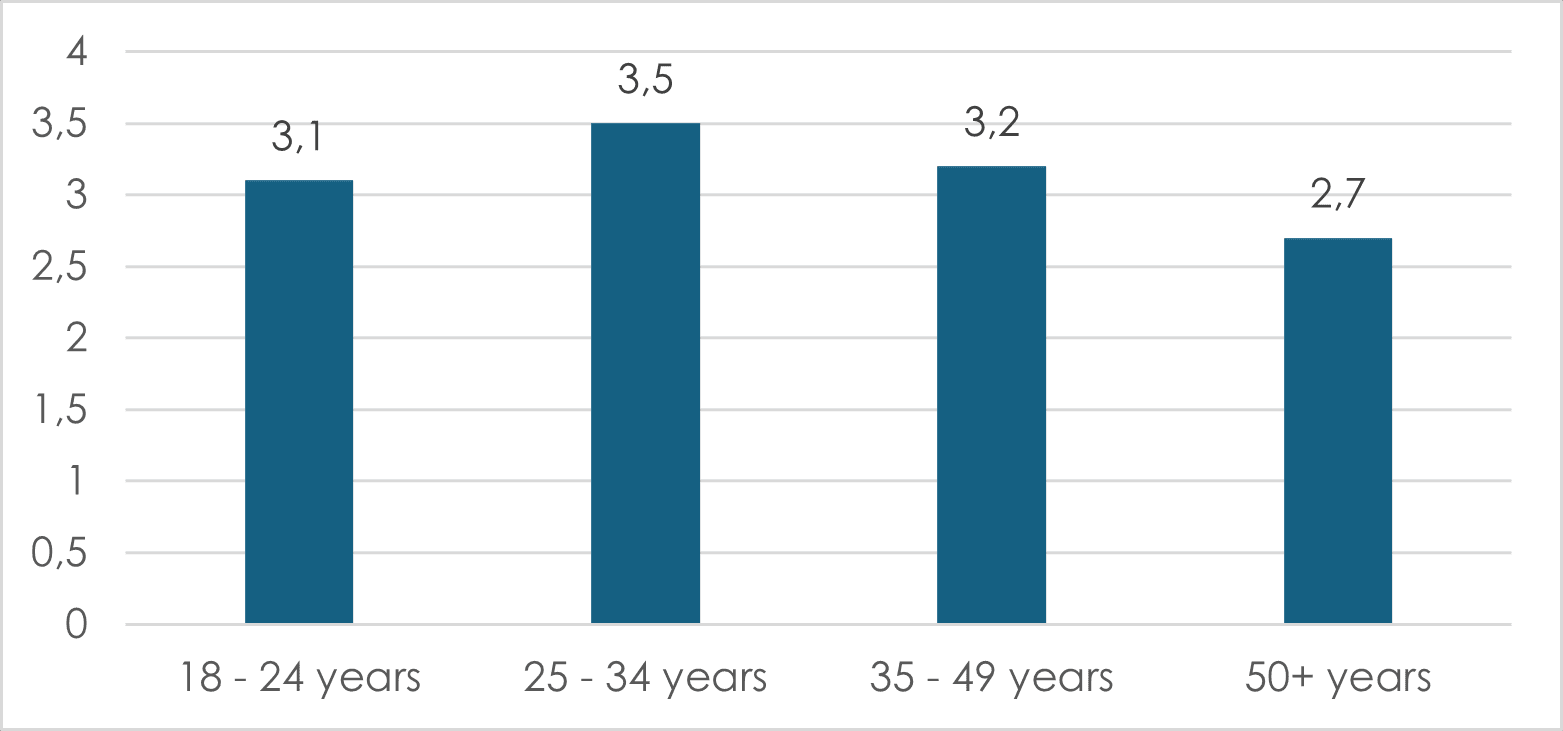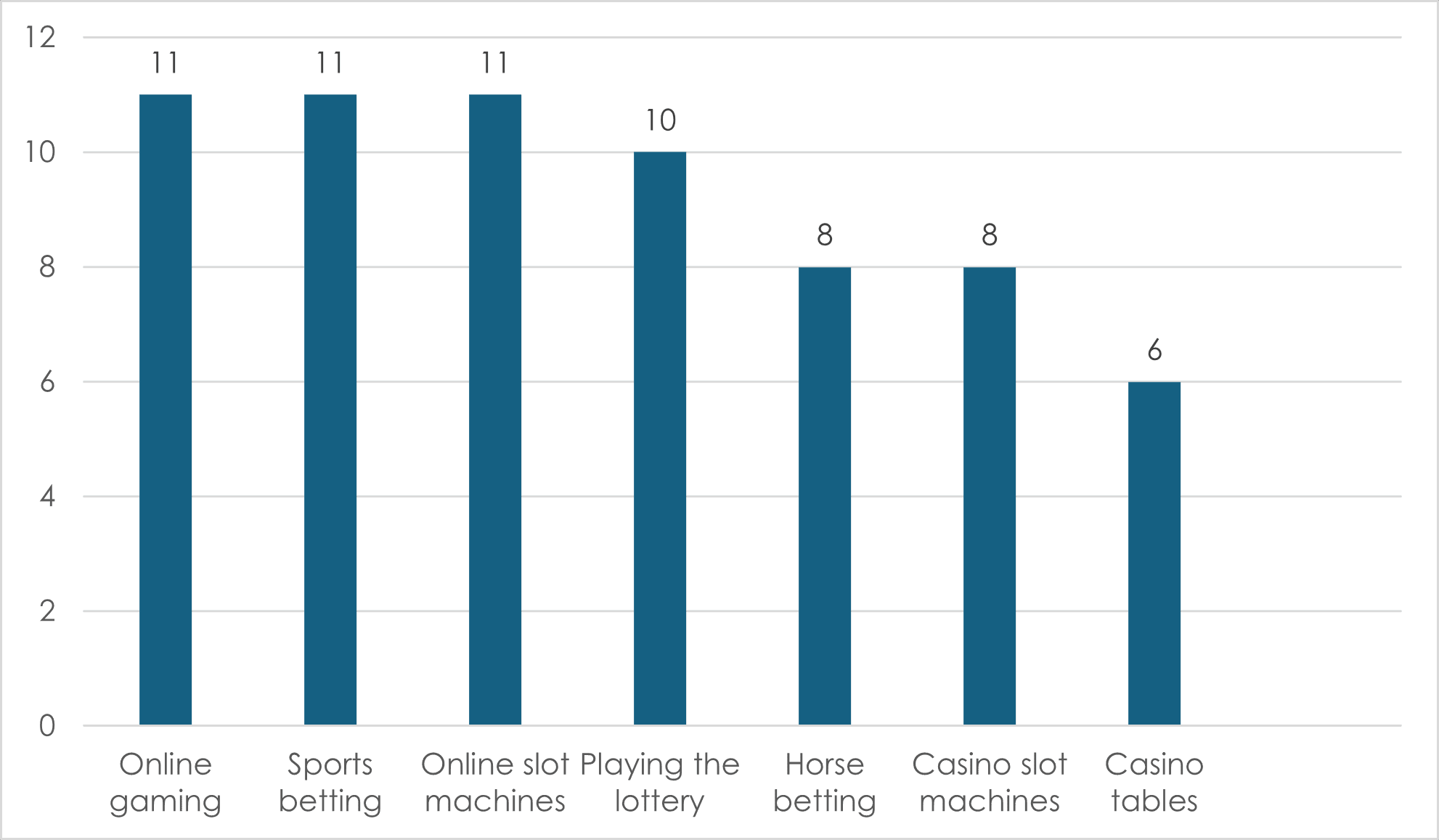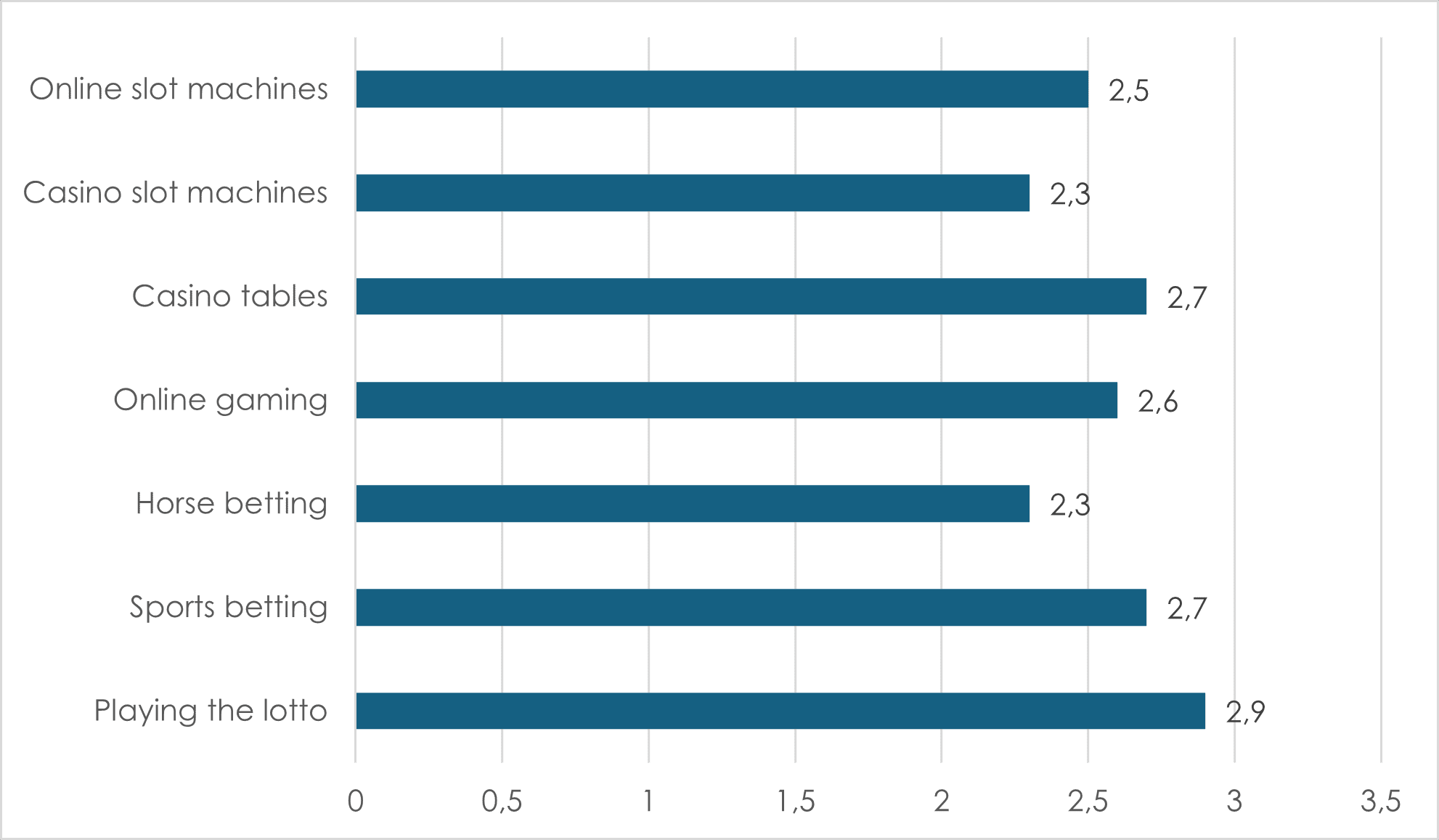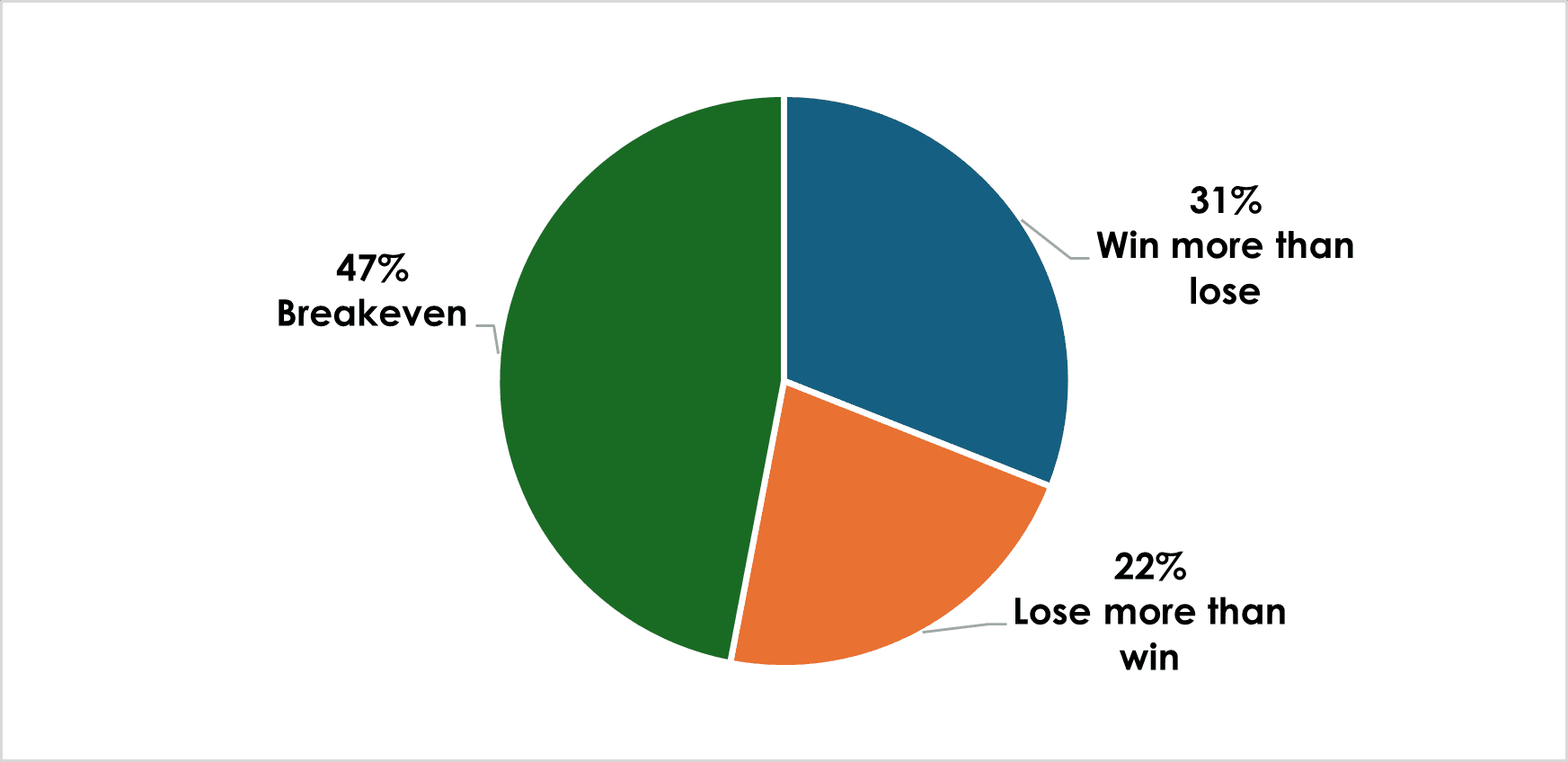The incidence of gambling in South Africa spans all age groups and with the accessibility of online gambling platforms, gambling is now an activity that can be conducted in-home and anywhere. To understand more about the dynamics of gambling, particularly amongst the youth, infoQuest, a leading South African online research company recently conducted a survey amongst 300 gamblers, 139 of which were younger gamblers (aged 18 – 34 years). The research was conducted during March 2024 and some of the main findings for the younger market are discussed below.
Participation in types of gambling activities
Online gaming and sports betting are the two most popular gambling activities amongst the youth, with playing the lotto in third place. Horse betting and gambling in casinos are the least popular.
It is interesting to note that younger gamblers participate in more types of gambling activities than their older counterparts. While this must certainly be influenced by the availability of more online options, it may also point to a greater appetite on the part of the youth for gambling.
Frequency of gambling (per month)
Online gaming, sports betting and online slot machines are gambling activities that the youth most frequently engage in – at an average of 11 times per month respectively.
Length of time gambling (years)
Overall, younger gamblers have been engaging in each activity for between 2 and 3 years.
Main reasons for gambling
The possibility of winning much needed funds is the main reason for gambling. There is also recreational element with some saying that it it’s fun and a good way to socialise.
“I am hooked and cannot stop” – due to sensitivities around gambling, this may be under-estimated
39% of younger gamblers use their winnings to gamble again, while 30% claim that they are gambling with excess funds that they have.
Winning or losing?
It is interesting to note that more claim to win than lose. Winning can create a powerful psychological effect that urges individuals to gamble more due to a combination of emotional and cognitive factors, with gamblers believing that they will continue to win.
‘As gambling becomes increasingly accessible through digital platforms, understanding these patterns is vital for developing effective policies and support systems to safeguard the well-being of young South Africans,’ says Claire Heckrath, MD, infoQuest. ‘Young people, often drawn by the prospect of quick financial gains and the excitement of risk, are increasingly engaging in gambling activities, sometimes with devastating consequences. This trend can lead to addiction, financial instability, and adverse effects on mental health and academic performance. The vulnerability of youth, combined with the sophisticated marketing tactics of the gambling industry, makes it imperative to implement preventive measures, provide education on the risks, and offer support to those affected. Addressing this issue is critical to safeguarding the well-being and future pro


